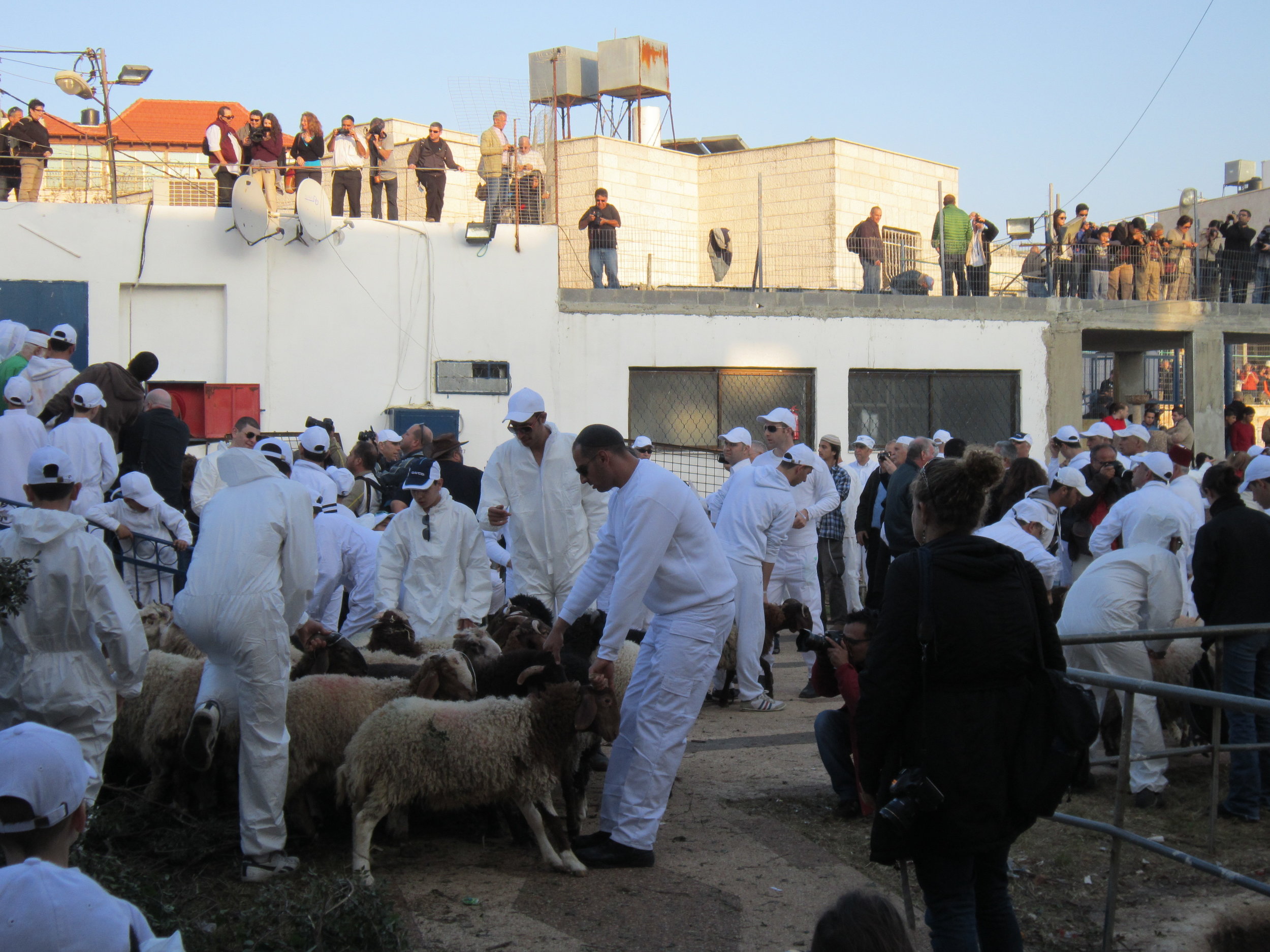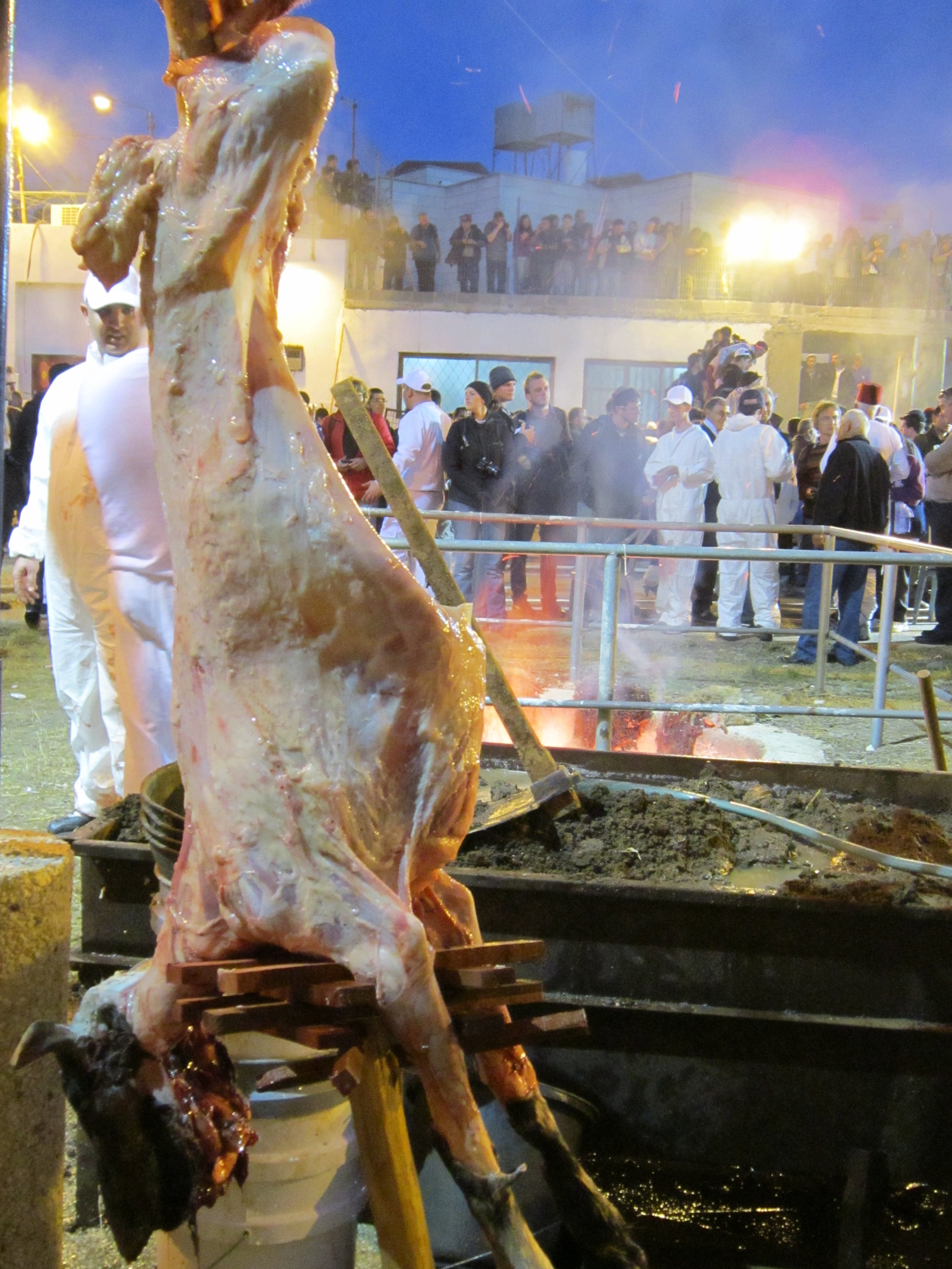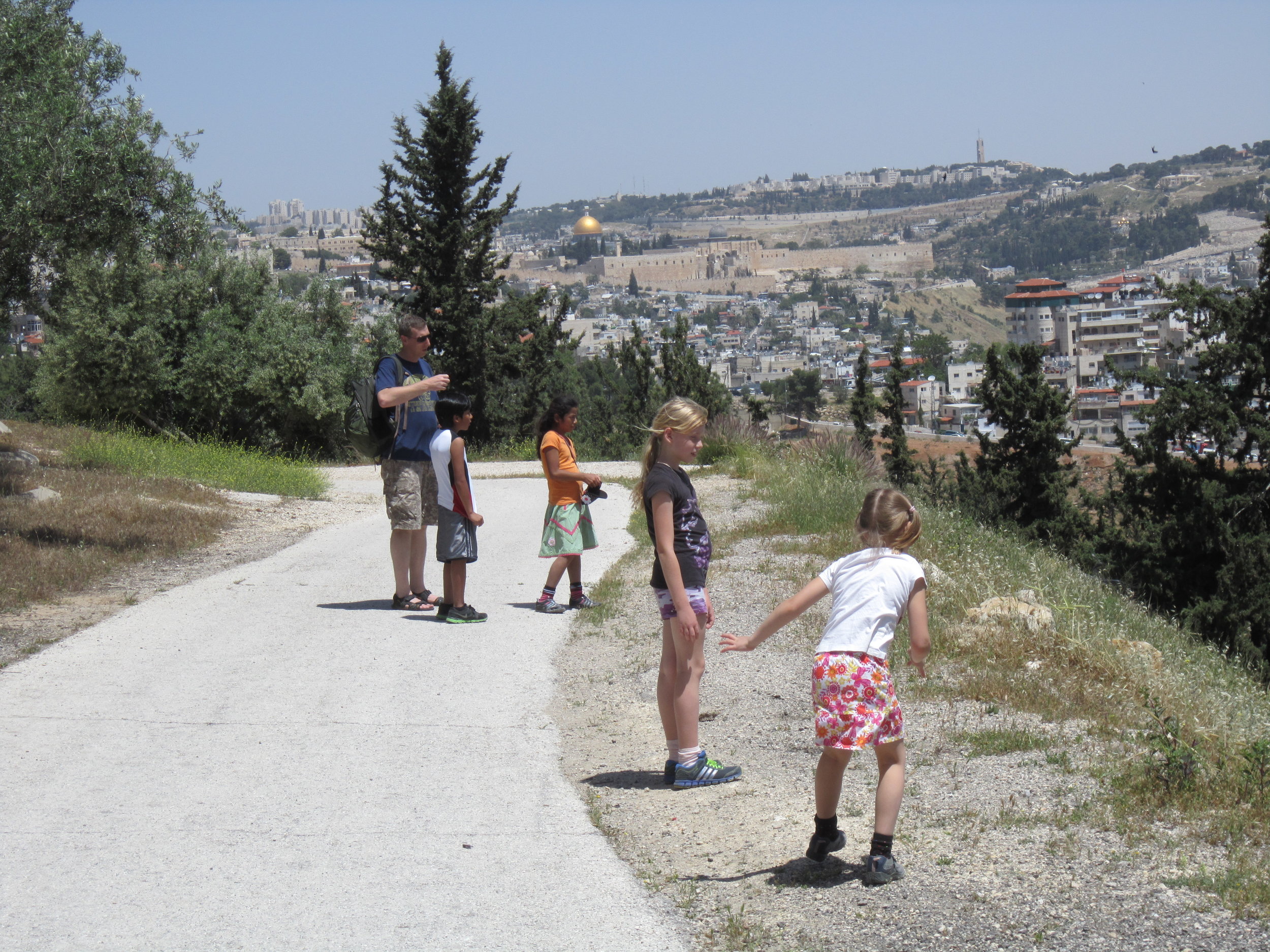Synagogues, sacrifices and the scripture: A recap of Dr. Johnson's time in Israel
The rituals of Israeli culture may be an academic interest for Dr. Dru Johnson, but while in Israel, he witnessed live animal sacrifices at the temple of Mt. Gerazim by a Samaritan sect.

Over 30 lambs were sacrificed in front of Johnson, in what his friend described as similar to a massive Brazilian barbecue, complete with longer prayers. “It was like a giant outdoor barbecue," Johnson said, but instead of cooking packaged meat they slaughtered livestock. “It seemed a lot less occult-ish and crazy and weird [than one might have expected]."
This year Johnson, the assistant professor of biblical studies at King's, spent four months (February through June) in Israel as a research fellow for the Institute for Advanced Studies at the Shalem Center in Jerusalem. “I had four months to write a whole book, which is a tight framework,” Johnson said. “I had read one book last year just to get me started thinking about it. So I started from scratch.”
With an average 50-hour work week, Johnson spent his typical day reading and writing for about 10 hours a day. He lived only 200 meters away from the Institute.
Johnson’s book, Biblical Knowing: A Scriptural Epistemology of Error, explored the foundation of his research: what makes one a good knower of the world, philosophically, scientifically and theologically.
The book in process explores how knowing comes from the body, how people are shaped as knowers.
“There are these old assumptions that we have this mental life that’s distinct from our physical life," he said. "The Scripture just presumed that your physical body gives you the concepts you need to think about the world."
He explained that the Old Testament and New Testament are constantly saying, "Do this ritual so that you will know this fact." Christians call this sacramentology, liturgy or ritual.
Johnson's curiosity regarding this subject emerged from his experience serving in the military at age 17. During this time and later throughout seminary, he struggled to reconcile abstract ideas with the concrete reality of peers maimed in combat. When his mentor approached him about shaping a biblical argument, Johnson took on the task that would eventually become his doctoral dissertation.
While in Jerusalem, Johnson spent most of his time outside of the office with his family, exploring the city and bringing his children on home school field trips around Jerusalem. Each night his family would walk a mile around the city and return home to play board games together.
Deciding to move four kids over to Israel was difficult—the process took months. Although the Johnson family had made overseas moves in the past, a difficult experience in Scotland caused them seriously assess the prospects of an Israeli excursion.
Johnson says that his family was not quite prepared for Scotland, and allowed the culture shock to divide them. "The time in Jerusalem reversed us as a family,” Johnson said.
"We had hardships in Israel too," he said, referring to his family's twice weekly 3-mile trek to buy groceries, lugging them home in backpacks. "But we used those things to bond."
Johnson watched his children released from the pressures that most American middle schoolers face: entitlement, showing off or gossip. "We learned we can enjoy each other," he said.
Aside from his time researching and writing, Johnson was able to attend Synagogue services and discuss his thesis with Jewish philosopher friends. “I got a lot less push back from them [my Jewish friends]; Christians are the ones who have to sell on the idea.”



